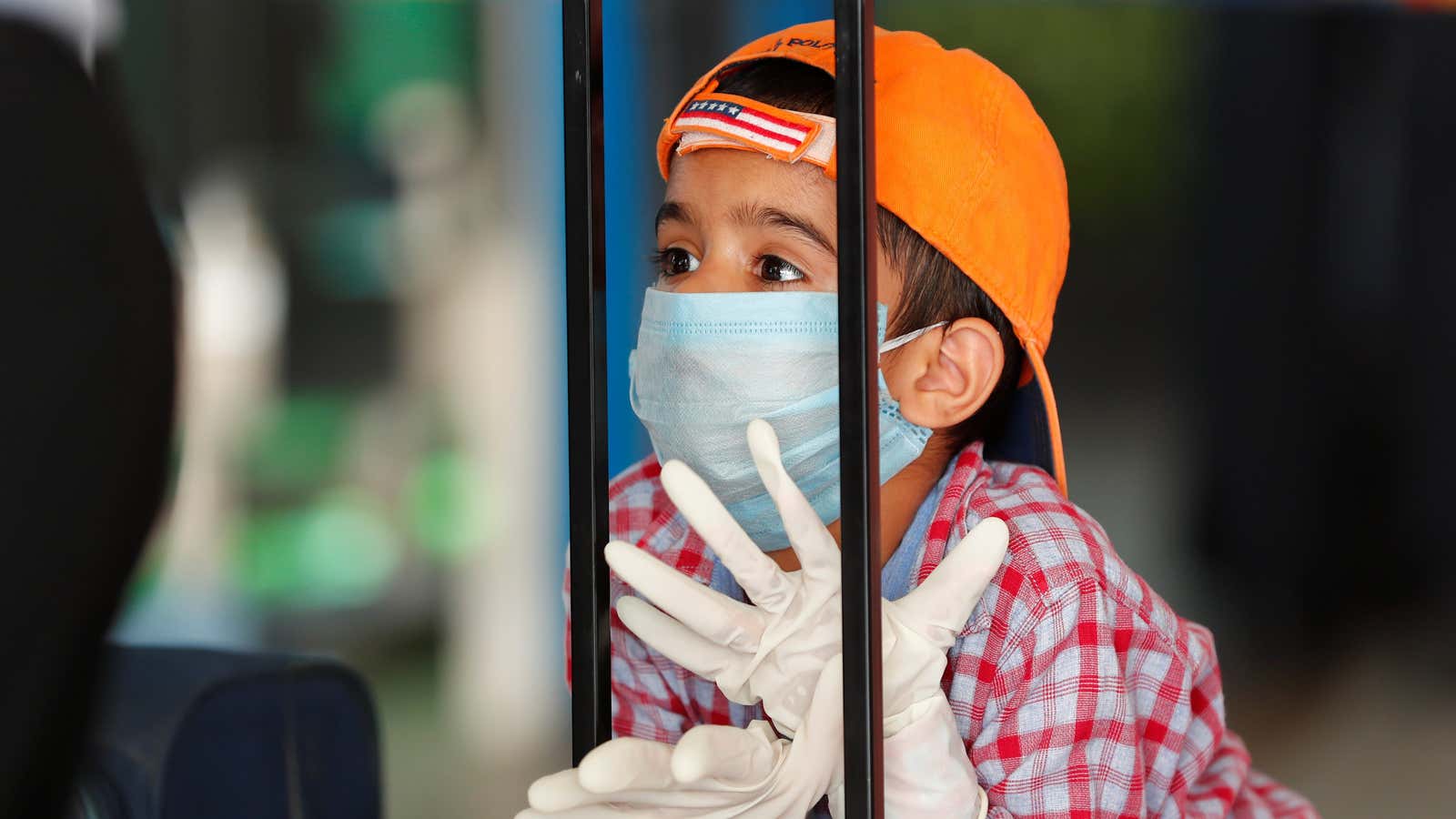Three months since its emergency authorisation, India is yet to roll out its first Covid-19 vaccine for children. Neither is an alternative in immediate sight.
Indian parents are now worried as schools begin to tentatively reopen for physical classrooms this month, after being online for more than 18 months.
So far, India has administered Covid-19 vaccine doses to over one billion people aged above 18.
Approved without public data
In August, the country’s drug regulator approved ZyCoV-D, India’s first Covid-19 vaccine for children over 12 years old. Developed by Indian pharmaceutical company Zydus Cadila, it is also the world’s first DNA-platform shot for the disease. The firm claimed 66.7% efficacy for the three-dose course, though no trial data have been made public. Its rollout is yet to begin.
The government vaccine panel believes the rollout is delayed because of a special needle-free injection ZyCoV-D needs. The shots will likely be in circulation this month, according to the committee.
However, it is more likely that India will depend on vaccines already in use to inoculate its children.
Covaxin and Covishield for children
Covishield, the Indian brand of the AstraZeneca vaccine, and India’s homegrown Covaxin are both being tested on children. These currently account for a majority of all vaccinations in India.
Serum Institute of India, the maker of Covishield, got the authorities’ nod on Sep. 28 to enrol 7-11 year-olds for clinical trials. It has held a limited trial on children aged 12-17 and submitted safety data from 100 of them.
Bharat Biotech, which manufactures Covaxin, submitted its trial data on Oct. 6 for children between the ages of 2 and 18. Unnamed sources on the government panel have said the vaccine has been okayed. However, again, neither the safety and efficacy data nor the conditions of its approval have been made public.
In any case, even with approvals, it may be a while before the vaccines are available.
While the government was expecting “an exponential rise” in production by Bharat Biotech in August, the number only rose from an estimated 35 million doses in September to 50 million in October. The reason cited was either the long production cycles for inactivated viruses or unmet capacity expansion targets.
Covaxin is also waiting to be listed for emergency use by the World Health Organization, which doesn’t want “to cut corners” while greenlighting it.
Do healthy children need to be vaccinated?
European countries like France and Spain, along with the US, Canada, the UK, and China, have approved Covid-19 jabs for varying age groups of children.
Experts in India, however, argue that fully vaccinating all adults must be the priority, especially since, in India, publicly available data are scant and the approval process opaque.
In the absence of quality data, the risks of vaccinating children may, in fact, outweigh the benefits, Dr Chandrakant Lahariya, physician-epidemiologist, argued in The New Indian Express newspaper.
“The epidemiological evidence from the last 18 months of the pandemic indicates that children do get infected at a rate nearly similar to that of adults (as also reported in the fourth nationwide sero survey in India). However, the risk of moderate to severe infection is low. Hence, the benefit of vaccinating children is lower than inoculating adults,” he writes.
